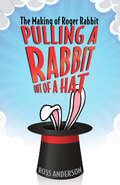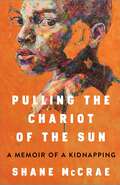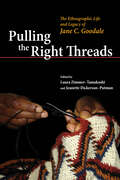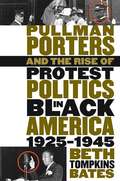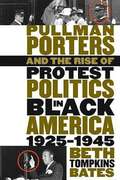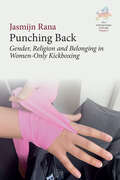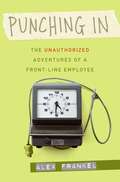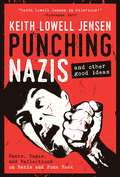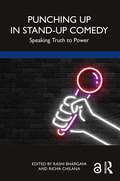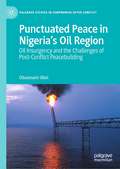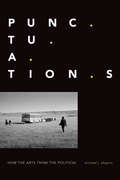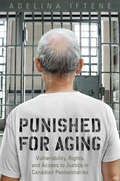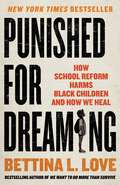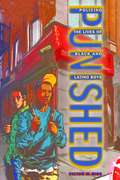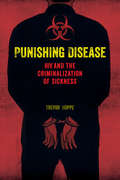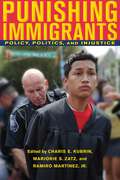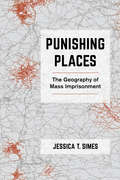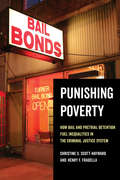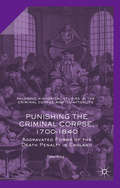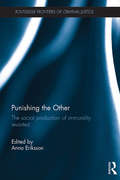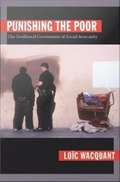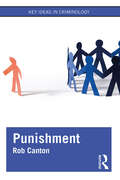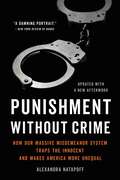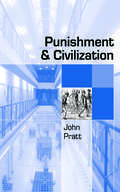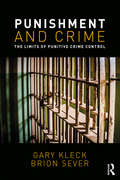- Table View
- List View
Pulling a Rabbit Out of a Hat: The Making of Roger Rabbit
by Ross AndersonWho Framed Roger Rabbit emerged at a nexus of people, technology, and circumstances that is historically, culturally, and aesthetically momentous. By the 1980s, animation seemed a dying art. Not even the Walt Disney Company, which had already won over thirty Academy Awards, could stop what appeared to be the end of an animation era. To revitalize popular interest in animation, Disney needed to reach outside its own studio and create the distinctive film that helped usher in a Disney Renaissance. That film, Who Framed Roger Rabbit, though expensive and controversial, debuted in theaters to huge success at the box office in 1988. Unique in its conceit of cartoons living in the real world, Who Framed Roger Rabbit magically blended live action and animation, carrying with it a humor that still resonates with audiences. Upon the film’s release, Disney’s marketing program led the audience to believe that Who Framed Roger Rabbit was made solely by director Bob Zemeckis, director of animation Dick Williams, and the visual effects company Industrial Light & Magic, though many Disney animators contributed to the project. Author Ross Anderson interviewed over 140 artists to tell the story of how they created something truly magical. Anderson describes the ways in which the Roger Rabbit characters have been used in film shorts, commercials, and merchandising, and how they have remained a cultural touchstone today.
Pulling the Chariot of the Sun: A Memoir of a Kidnapping
by Shane McCraeAn unforgettable memoir by an award-winning poet about being kidnapped from his Black father and raised by his white supremacist grandparents.When Shane McCrae was three years old, his grandparents kidnapped him and took him to suburban Texas. His mom was white and his dad was Black, and to hide his Blackness from him, his maternal grandparents stole him from his father. In the years that followed, they manipulated and controlled him, refusing to acknowledge his heritage—all the while believing they were doing what was best for him. For their own safety and to ensure the kidnapping remained a success, Shane&’s grandparents had to make sure that he never knew the full story, so he was raised to participate in his own disappearance. But despite elaborate fabrications and unreliable memories, Shane begins to reconstruct his own story and to forge his own identity. Gradually, the truth unveils itself, and with the truth, comes a path to reuniting with his father and finding his own place in the world. A revelatory account of a singularly American childhood that hauntingly echoes the larger story of race in our country, Pulling the Chariot of the Sun is written with the virtuosity and heart of one of the finest poets writing today. And it is also a powerful reflection on what is broken in America—but also what might heal and make it whole again.
Pulling the Right Threads: The Ethnographic Life and Legacy of Jane C. Goodale
by Miriam Kahn Deborah Bird Rose William W. Donner Jane Fajans Eric Venbrux Laura Zimmer-Tamakoshi Jeanette Dickerson-Putman Jane C. Goodale Michele Dominy Pamela Sheffield Rosi Michael D. Lieber Joy A BilharzA tribute to Jane C. Goodale, Pulling the Right Threads discusses the vibrant ethnographer and teacher's principles for mentoring, collaborating, and performing fieldwork. Known for her ethnographic research in the Pacific, development of the Association of Social Anthropology in Oceania, and influence in the anthropology department at Bryn Mawr College, Goodale and other contributors renew the debate in anthropology over the authenticity of field data and representations of other cultures. Together, they take aim at those who claim ethnography is outmoded or false.
Pullman Porters and the Rise of Protest Politics in Black America, 1925-1945
by Beth Tompkins BatesBetween World War I and World War II, African Americans' quest for civil rights took on a more aggressive character as a new group of black activists challenged the politics of civility traditionally embraced by old-guard leaders in favor of a more forceful protest strategy. Beth Tompkins Bates traces the rise of this new protest politics--which was grounded in making demands and backing them up with collective action--by focusing on the struggle of the Brotherhood of Sleeping Car Porters (BSCP) to form a union in Chicago, headquarters of the Pullman Company. Bates shows how the BSCP overcame initial opposition from most of Chicago's black leaders by linking its union message with the broader social movement for racial equality. As members of BSCP protest networks mobilized the black community around the quest for manhood rights and economic freedom, they broke down resistance to organized labor even as they expanded the boundaries of citizenship to include equal economic opportunity. By the mid-1930s, BSCP protest networks gained platforms at the national level, fusing Brotherhood activities first with those of the National Negro Congress and later with the March on Washington Movement. Lessons learned during this era guided the next generation of activists, who carried the black freedom struggle forward after World War II.
Pullman Porters and the Rise of Protest Politics in Black America, 1925-1945
by Beth Tompkins BatesBetween World War I and World War II, African Americans' quest for civil rights took on a more aggressive character as a new group of black activists challenged the politics of civility traditionally embraced by old-guard leaders in favor of a more forceful protest strategy. Beth Tompkins Bates traces the rise of this new protest politics--which was grounded in making demands and backing them up with collective action--by focusing on the struggle of the Brotherhood of Sleeping Car Porters (BSCP) to form a union in Chicago, headquarters of the Pullman Company. Bates shows how the BSCP overcame initial opposition from most of Chicago's black leaders by linking its union message with the broader social movement for racial equality. As members of BSCP protest networks mobilized the black community around the quest for manhood rights and economic freedom, they broke down resistance to organized labor even as they expanded the boundaries of citizenship to include equal economic opportunity. By the mid-1930s, BSCP protest networks gained platforms at the national level, fusing Brotherhood activities first with those of the National Negro Congress and later with the March on Washington Movement. Lessons learned during this era guided the next generation of activists, who carried the black freedom struggle forward after World War II.
Punching Back: Gender, Religion and Belonging in Women-Only Kickboxing (New Anthropologies of Europe: Perspectives and Provocations #5)
by Jasmijn RanaIn the Netherlands, girls and young women are increasingly active in women-only kickboxing. The general assumption, in the Netherlands and in western Europe more broadly, is that women’s sport is a form of secular, feminist empowerment. Muslim women’s participation would then exemplify the incongruence of Islam with the modern, secular nation-state. Punching Back provides a detailed ethnographic study that contests this view by showing that young Muslim women who kickbox establish agentive selves by playing with gender norms, challenging expectations, and living out their religious subjectivities.
Punching In
by Alex FrankelDuring a two-year urban adventure through the world of commerce, journalist Alex Frankel proudly wore the brown uniform of the UPS driver, folded endless stacks of T-shirts at Gap, brewed espressos for the hordes at Starbucks, interviewed (but failed to get hired) at Whole Foods, enrolled in management training at Enterprise Rent-A-Car, and sold iPods at the Apple Store. In this lively and entertaining narrative, Frankel takes readers on a personal journey into the land of front-line employees to discover why some workers are so eager to drink the corporate Kool-Aid and which companies know how to serve it up best.
Punching Nazis: And Other Good Ideas
by Keith Lowell JensenKeith Lowell Jensen thinks you should punch Nazis. In this collection of essays, stories, interviews, and rants, he tells us why. Jensen grew up and into the Sacramento punk music scene in the late eighties and early nineties, where weirdos, LGBTQ folk, feminists, and allies strived to carve out safe community spaces. This scene also attracted a different kind of outsider--white supremacists and Nazi skinheads—making for a politically charged and complicated landscape. In Punching Nazis, he reflects on his experiences with these racist fringe groups that infiltrated the progressive scene that gave rise to bands like Green Day. From unwittingly driving around in a lowrider with a gang called “The Suicidals,” to a night doing stand-up with a clown with an unwanted Swastika tattoo, Jensen brings his brand of subtle, sincere comedy to reflect on the complicated relationship that punk music has with racist skinheads and what we should do about it. In recent times, Americans are surprised to find groups like the Klan, and more recently the "Racial Realists" and the "Alt-Right," are still prominent, and now as they grow increasingly emboldened, it’s intriguing and valuable to hear tales of those who, through the love of punk rock music, have a history of dealing with racist fringe groups.
Punching Up in Stand-Up Comedy: Speaking Truth to Power
by Rashi Bhargava Richa ChilanaPunching Up in Stand-Up Comedy explores the new forms, voices and venues of stand-up comedy in different parts of the world and its potential role as a counterhegemonic tool for satire, commentary and expression of identity especially for the disempowered or marginalised. The title brings together essays and perspectives on stand-up and satire from different cultural and political contexts across the world which raise pertinent issues regarding its role in contemporary times, especially with the increased presence of OTT platforms and internet penetration that allows for easy access to this art form. It examines the theoretical understanding of the different aspects of the humour, aesthetics and politics of stand-up comedy, as well as the exploration of race, gender, politics and conflicts, urban culture and LGBTQ+ identities in countries such as Indonesia, Finland, France, Iran, Italy, Morocco, India and the USA. It also asks the question whether, along with contesting and destabilising existing discursive frameworks and identities, a stand-up comic can open up a space for envisaging a new social, cultural and political order? This book will appeal to people interested in performance studies, media, popular culture, digital culture, sociology, digital sociology and anthropology, and English literature.
Punctuated Peace in Nigeria’s Oil Region: Oil Insurgency and the Challenges of Post-Conflict Peacebuilding (Palgrave Studies in Compromise after Conflict)
by Obasesam OkoiThis book examines the extent to which peacebuilding processes such as disarmament, demobilization, and reintegration are possible in the attempt to demilitarize Nigeria’s oil region and establish a stable post-conflict environment for nurturing durable peace. The book argues that the failure of the peacebuilders to address the structural tensions at the heart of insurgency, along with competition for access to the material benefits of peacebuilding, have revived violence at repeated intervals that punctuates the progression of peace. The author’s analysis shows how the interventions pursued by peacebuilders have been successful in stabilizing the oil region by taking arms from insurgents, paying them monthly allowances, and building their capacity to reintegrate into society through a range of transformational processes. While these interventions are praiseworthy, they have transformed the political realities of peacebuilding into an economic enterprise that makes recourse to violence a lucrative endeavour as identity groups frequently mobilize insurgency targeting oil infrastructure to compel the state to enter into negotiations with them. There was little consideration for the impact corruption might have on the peacebuilding process. As corruption becomes entrenched, it fosters exclusion and anger, leading to further conflict. The book proposes pathways to positive peacebuilding in Nigeria’s oil region.
Punctuations: How the Arts Think the Political
by Michael J. ShapiroIn Punctuations Michael J. Shapiro examines how punctuation—conceived not as a series of marks but as a metaphor for the ways in which artists engage with intelligibility—opens pathways for thinking through the possibilities for oppositional politics. Drawing on Theodor Adorno, Alain Robbe-Grillet, and Roland Barthes, Shapiro demonstrates how punctuation's capacity to create unexpected rhythmic pacing makes it an ideal tool for writers, musicians, filmmakers, and artists to challenge structures of power. In works ranging from film scores and jazz compositions to literature, architecture, and photography, Shapiro shows how the use of punctuation reveals the contestability of dominant narratives in ways that prompt readers, viewers, and listeners to reflect on their acceptance of those narratives. Such uses of punctuation, he theorizes, offer models for disrupting structures of authority, thereby fostering the creation of alternative communities of sense from which to base political mobilization.
Punished for Aging: Vulnerability, Rights, and Access to Justice in Canadian Penitentiaries
by Adeline IfteneBuilt around the experiences of older prisoners, Punished for Aging looks at the challenges individuals face in Canadian penitentiaries and their struggles for justice. Through firsthand accounts and quantitative data drawn from extensive interviews, this book brings forward the experiences of federally incarcerated people living their "golden years" behind bars. These experiences show the limited ability of the system to respond to heightened needs, while also raising questions about how international and national laws and policies are applied, and why they fail to ensure the safety and well-being of incarcerated individuals. In so doing, Adelina Iftene explores the shortcomings of institutional processes, prison-monitoring mechanisms, and legal remedies available in courts and tribunals, which leave prisoners vulnerable to rights abuses. Some of the problems addressed in this book are not new; however, the demographic shift and the increase in people dying in prisons after long, inadequately addressed illnesses, with few release options, adds a renewed sense of urgency to reform. Working from the interview data, contextualized by participants’ lived experiences, and building on previous work, Iftene seeks solutions for such reform, hich would constitute a significant step forward not only in protecting older prisoners, but in consolidating the status of incarcerated individuals as holders of substantive rights.
Punished for Dreaming: How School Reform Harms Black Children and How We Heal
by Bettina L. Love“I am an eighties baby who grew to hate school. I never fully understood why. Until now. Until Bettina Love unapologetically and painstakingly chronicled the last forty years of education ‘reform’ in this landmark book. I hated school because it warred on me. I hated school because I loved to dream.” <p>—Ibram X. Kendi, New York Times bestselling author of How to be an Antiracist <p><p> In the tradition of Michelle Alexander, an unflinching reckoning with the impact of 40 years of racist public school policy on generations of Black lives. <p><p> In Punished for Dreaming Dr. Bettina Love argues forcefully that Reagan’s presidency ushered in a War on Black Children, pathologizing and penalizing them in concert with the War on Drugs. New policies punished schools with policing, closure, and loss of funding in the name of reform, as white savior, egalitarian efforts increasingly allowed private interests to infiltrate the system. These changes implicated children of color, and Black children in particular, as low performing, making it all too easy to turn a blind eye to their disproportionate conviction and incarceration. Today, there is little national conversation about a structural overhaul of American schools; cosmetic changes, rooted in anti-Blackness, are now passed off as justice. <p><p> It is time to put a price tag on the miseducation of Black children. In this prequel to The New Jim Crow, Dr. Love serves up a blistering account of four decades of educational reform through the lens of the people who lived it. Punished for Dreaming lays bare the devastating effect on 25 Black Americans caught in the intersection of economic gain and racist ideology. Then, with input from leading U.S. economists, Dr. Love offers a road map for repair, arguing for reparations with transformation for all children at its core. <p> <b>New York Times Bestseller</b>
Punished: Policing the Lives of Black and Latino Boys (New Perspectives in Crime, Deviance, and Law Series)
by Victor M. RiosThis book examines the difficult lives of young Latino and African American boys caught in a cycles of delinquency in a legal system that limits their opportunities.
Punishing Disease: HIV and the Criminalization of Sickness
by Trevor HoppeFrom the very beginning of the epidemic, AIDS was linked to punishment. Calls to punish people living with HIV—mostly stigmatized minorities—began before doctors had even settled on a name for the disease. Punishing Disease looks at how HIV was transformed from sickness to badness under the criminal law and investigates the consequences of inflicting penalties on people living with disease. Now that the door to criminalizing sickness is open, what other ailments will follow? With moves in state legislatures to extend HIV-specific criminal laws to include diseases such as hepatitis and meningitis, the question is more than academic.
Punishing Immigrants: Policy, Politics, and Injustice (New Perspectives in Crime, Deviance, and Law #15)
by Marjorie S. Zatz Charis E. Kubrin Ramiro Martínez Jr.Arizona’s controversial new immigration bill is just the latest of many steps in the new criminalization of immigrants. While many cite the presumed criminality of illegal aliens as an excuse for ever-harsher immigration policies, it has in fact been well-established that immigrants commit less crime, and in particular less violent crime, than the native-born and that their presence in communities is not associated with higher crime rates. Punishing Immigrants moves beyond debunking the presumed crime and immigration linkage, broadening the focus to encompass issues relevant to law and society, immigration and refugee policy, and victimization, as well as crime. The original essays in this volume uncover and identify the unanticipated and hidden consequences of immigration policies and practices here and abroad at a time when immigration to the U.S. is near an all-time high. Ultimately, Punishing Immigrants illuminates the nuanced and layered realities of immigrants’ lives, describing the varying complexities surrounding immigration, crime, law, and victimization.Podcast: Susan Bibler Coutin, on the process and effects of deportation —Listen here.
Punishing Places: The Geography of Mass Imprisonment
by Jessica T. SimesPunishing Places applies a unique spatial analysis to mass incarceration in the United States. It demonstrates that our highest imprisonment rates are now in small cities, suburbs, and rural areas. Jessica Simes argues that mass incarceration should be conceptualized as one of the legacies of U.S. racial residential segregation, but that a focus on large cities has diverted vital scholarly and policy attention away from communities affected most by mass incarceration today. This book presents novel measures for estimating the community-level effects of incarceration using spatial, quantitative, and qualitative methods. This analysis has broad and urgent implications for policy reforms aimed at ameliorating the community effects of mass incarceration and promoting alternatives to the carceral system.
Punishing Poverty: How Bail and Pretrial Detention Fuel Inequalities in the Criminal Justice System
by Henry F. Fradella Christine S. Scott-HaywardMost people in jail have not been convicted of a crime. Instead, they have been accused of a crime and cannot afford to post the bail amount to guarantee their freedom until trial. Punishing Poverty examines how the current system of pretrial release detains hundreds of thousands of defendants awaiting trial. Tracing the historical antecedents of the US bail system, with particular attention to the failures of bail reform efforts in the mid to late twentieth century, the authors describe the painful social and economic impact of contemporary bail decisions. The first book-length treatment to analyze how bail reproduces racial and economic inequality throughout the criminal justice system, Punishing Poverty explores reform efforts, as jurisdictions begin to move away from money bail systems, and the attempts of the bail bond industry to push back against such reforms. This accessibly written book gives a succinct overview of the role of pretrial detention in fueling mass incarceration and is essential reading for researchers and reformers alike.
Punishing the Criminal Corpse, 1700-1840
by Peter KingThis book is open access under a CC BY 4. 0 licence. This book analyses the different types of post-execution punishments and other aggravated execution practices, the reasons why they were advocated, and the decision, enshrined in the Murder Act of 1752, to make two post-execution punishments, dissection and gibbeting, an integral part of sentences for murder. It traces the origins of the Act, and then explores the ways in which Act was actually put into practice. After identifying the dominance of penal dissection throughout the period, it looks at the abandonment of burning at the stake in the 1790s, the rapid decline of hanging in chains just after 1800, and the final abandonment of both dissection and gibbeting in 1832 and 1834. It concludes that the Act, by creating differentiation in levels of penalty, played an important role within the broader capital punishment system well into the nineteenth century. While eighteenth- and early nineteenth-century historians have extensively studied the 'Bloody Code' and the resulting interactions around the 'Hanging Tree', they have largely ignored an important dimension of the capital punishment system - the courts extensive use of aggravated and post-execution punishments. With this book, Peter King aims to rectify this neglected historical phenomenon.
Punishing the Other: The social production of immorality revisited (Routledge Frontiers of Criminal Justice)
by Anna ErikssonPunishing the Other draws on the work of Zygmunt Bauman to discuss contemporary discourses and practices of punishment and criminalization. Bringing together some of the most exciting international scholars, both established and emerging, this book engages with Bauman’s thesis of the social production of immorality in the context of criminalization and social control and addresses processes of ‘othering’ through a range of contemporary case studies situated in various cultural, political and social contexts. Topics covered include the increasing bureaucratization of the business of punishment with the corresponding loss of moral and ethical reflection in the public sphere; punitive discourses around border control and immigration; and exclusionary discourses and their consequences concerning ‘terrorists’ and other socially and culturally defined outsiders. Engaging with national and global issues that are more topical now than ever before, this book is essential reading for academics and students of involved in the study of the sociology of punishment, punishment and modern society, the criminal justice system, philosophy and punishment, and comparative criminology and penology.
Punishing the Poor: The Neoliberal Government of Social Insecurity
by Loïc WacquantThe punitive turn of penal policy in the United States after the acme of the Civil Rights movement responds not to risingcriminalinsecurity but to thesocialinsecurity spawned by the fragmentation of wage labor and the shakeup of the ethnoracial hierarchy. It partakes of a broader reconstruction of the state wedding restrictive "workfare" and expansive "prisonfare" under a philosophy of moral behaviorism. This paternalist program of penalization of poverty aims to curb the urban disorders wrought by economic deregulation and to impose precarious employment on the postindustrial proletariat. It also erects a garish theater of civic morality on whose stage political elites can orchestrate the public vituperation of deviant figures-the teenage "welfare mother," the ghetto "street thug," and the roaming "sex predator"-and close the legitimacy deficit they suffer when they discard the established government mission of social and economic protection. By bringing developments in welfare and criminal justice into a single analytic framework attentive to both the instrumental and communicative moments of public policy,Punishing the Poorshows that the prison is not a mere technical implement for law enforcement but a core political institution. And it reveals that the capitalist revolution from above called neoliberalism entails not the advent of "small government" but the building of an overgrown and intrusive penal state deeply injurious to the ideals of democratic citizenship.
Punishment (Key Ideas in Criminology)
by Rob CantonThis book explores the concept of punishment: its meaning and significance, not least to those subject to it; its social, political and emotional contexts; its role in the criminal justice system; and the difficulties of bringing punishment to an end. It explores how levels of criminal punishment could and should be reduced, without compromising moral standards, public safety or the rights of victims of crime. Core contents include: Why punishment matters, the salience of emotions in its various discourses and the role of culture. The politicisation of punishment and legitimacy. The penal system, the prominence of the prison in research on punishment and the role of community sanctions. The aims of punishment, its limits and the role of power. The ethics of punishment and human rights. Punishment and social order. This book is essential reading for all criminologists, as well as students taking courses on punishment, penology, prisons and the criminal justice system.
Punishment Without Crime: How Our Massive Misdemeanor System Traps the Innocent and Makes America More Unequal
by Alexandra NatapoffA revelatory account of the misdemeanor machine that unjustly brands millions of Americans as criminalsPunishment Without Crime offers an urgent new interpretation of inequality and injustice in America by examining the paradigmatic American offense: the lowly misdemeanor. Based on extensive original research, legal scholar Alexandra Natapoff reveals the inner workings of a massive petty offense system that produces over 13 million cases each year. People arrested for minor crimes are swept through courts where defendants often lack lawyers, judges process cases in mere minutes, and nearly everyone pleads guilty. This misdemeanor machine starts punishing people long before they are convicted; it punishes the innocent; and it punishes conduct that never should have been a crime. As a result, vast numbers of Americans -- most of them poor and people of color -- are stigmatized as criminals, impoverished through fines and fees, and stripped of drivers' licenses, jobs, and housing.For too long, misdemeanors have been ignored. But they are crucial to understanding our punitive criminal system and our widening economic and racial divides.A Publishers Weekly Best Book of 2018
Punishment and Civilization: Penal Tolerance and Intolerance in Modern Society
by John Pratt`A lucid and fascinating account of how society initially comes to be viewed as 'civilized' on the basis of how it punishes its offenders, and the various numances and contradictions that form the backdrop to that 'civilization' prior to 1970 and the unraveling of that process thereafter. ...He [Pratt] has at the very least broadened the boundaries of the debate about the history of imprisonment in new and novel ways that will surely become a basis for future analysis' - The Howard Journal of Criminal Justice 'In presenting and organizing such a wealth of historical material, John Pratt's book will be welcomed by those who teach and study the history of the prison in the English-speaking world' - Criminal Justice Punishment and Civilization examines how a framework of punishment that suited the values and standards of the civilized world came to be set in place from around 1800 to the late 20th century. In this book, John Pratt draws on research about prison architecture, clothing, diet, hygienic arrangements and changes in penal language to establish this. The author demonstrates that this did not mean, however, that such a framework of punishment was 'civilized'. Instead it meant that punishment in the civilized world became anonymous and remote. Prison brutalities and privations could be largely unchecked by a public that did not want to be involved. In the last few decades it has become clear that civilized societies have to tolerate new boundaries of punishment. This is not because of any development of 'civilized punishment'. Instead this is due to a shift in public mood and power: from public indifference to public involvement in penal development. Throughout this text theoretical ideas and concepts are accessibly introduced and illustrated with a wide range of examples from the UK, USA, Canada, Australia and New Zealand. It will be essential reading for students and academics of punishment, prisons and social theory.
Punishment and Crime: The Limits of Punitive Crime Control
by Gary Kleck Brion SeverThis book summarizes and synthesizes a vast body of research on the effects of legal punishment and criminal behavior. Covering studies conducted between 1967 and 2015, Punishment and Crime evaluates the assertion that legal punishment reduces crime by investigating the impacts, both positive and negative, of legal punishment on criminal behavior, with emphasis on the effects of punitive crime control policies via the mechanisms of deterrence and incapacitation. Brion Sever and Gary Kleck, author of the renowned Point Blank: Guns and Violence in America, present a literature review on legal punishment in the United States that is unparalleled in depth and scope. This text is a must-read for students, researchers, and policymakers concerned with the fields of corrections and crime prevention.
